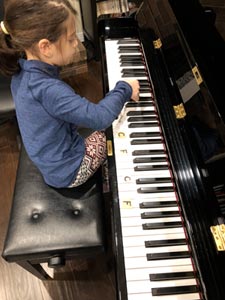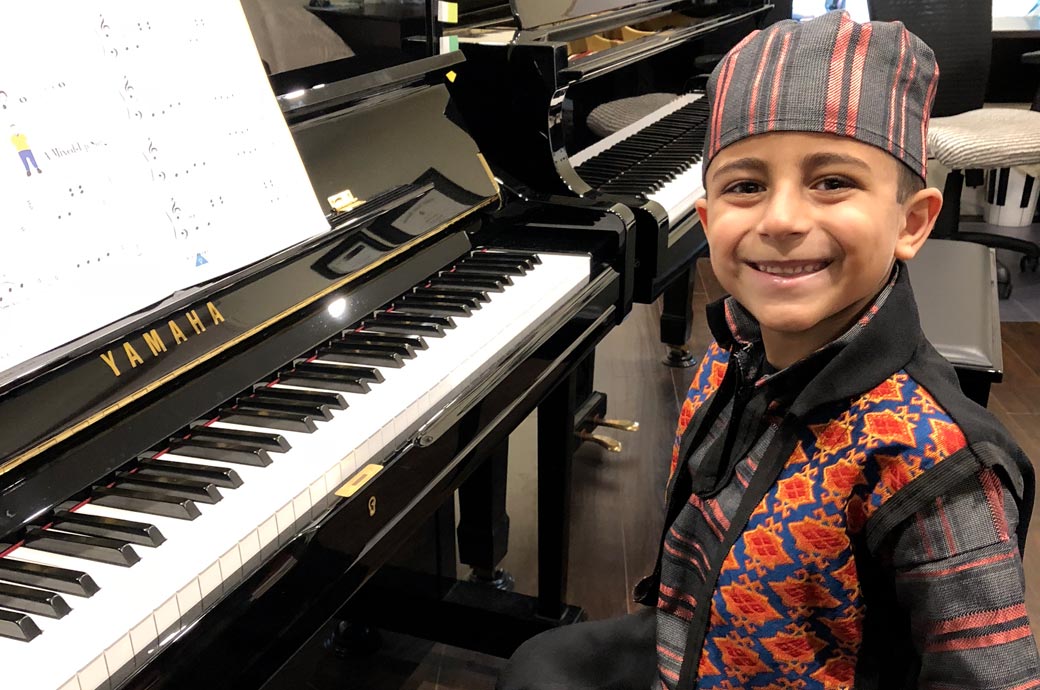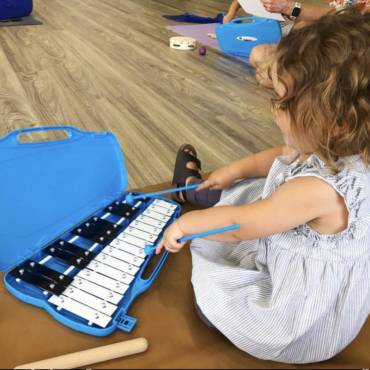Follow these 12 guidelines to help your child succeed in piano lessons.
1. Make sure you understand what is required from you and your child.
Establishing student requirements is extremely important therefore the best way to accomplish this is to sit in on the first lesson and as many lessons as you can. If your child works better “Without mom or dad”, then leave a portion of lesson time to go over what was learned and assigned at each lesson. A good teacher will tell you upfront how much a student is expected to practice, giving suggestions on how to practice, how much time should be spent on practicing, and even have you keep a practice log to be filled.
2. Do not “skip” lessons.
Skipping lessons is only acceptable if your child is truly sick, if there is a family emergency, or you’ve already made a swap for a different time due to a family event (wedding, first communion, pre-planned vacation, etc.) Teachers are usually understanding and willing to accommodate a make-up lesson, but skipping a lesson to “go shopping” or “have a friend over” is telling your child that their piano education is not a priority. Not only does it diminish the importance of piano lessons and practice, but it also delays another week of lessons therefore hindering your child’s progress.
3. Practice makes progress.
This means the more your child practices, the more your child progresses! I often compare registering for piano lessons to signing up for a gym membership. The more you exercise at the gym, the more results you’ll see. The more you practice, the more results you’ll see. There is no greater frustration to the student and teacher than weeks of no practice. Teachers were students once, so they understand that some weeks are just impossible to put in a decent amount of practice. However, going an entire week or two without having even opened your piano book bag will only cause your child to regress in their piano learning. As a result when a child begins to regress, they begin to feel discouraged. Just know that the amount of time your child spends practicing, the more value you are getting for your money spent.
If you can’t fit in an entire practice session just remember that even a little practice a day goes a long way.
4. Set a routine
Practicing needs to be considered as important as homework, attending dance rehearsal or hockey practice. Setting a routine practice time is the best way to assure your child will be practicing successfully throughout the week. Whether it’s right after dinner, right after school, or first thing after breakfast, find the time of day that works for you and your family and stick to it! You will see a big difference in your child’s performance all the while teaching them how to organize tasks and work at such a young age.
 5. Learn “How” to practice.
5. Learn “How” to practice.
Learning how to practice is 50% of the work.
This means:
– Understanding that practicing does not always mean playing a song from beginning to end. And especially not only one time through.
– Understanding that technique requirements are to be included at every practice.
– Understanding that teachers leave specific instructions on practice methods for a reason.
– Complete all assignments – not just the convenient ones.
6. Inform your teacher about your child.
Do not hesitate to let the teacher know if there are any learning disabilities, environmental fears/problems, etc. This will allow the teacher to plan and adjust lessons accordingly and better understand your child’s needs. Do large crowds make your child anxious? (this could effect your child’s Recital experience) Does your child have difficulty reading on their own or have a learning disorder that the teacher should be made aware of? Please do not hesitate to let the teacher know beforehand so they can plan their lesson accordingly. Piano teachers are able to pick up most learning characteristics fairly quickly and are ready to work with you to create an effective and comfortable learning experience for your child.
7. Keep the communication dialogue open.
The teacher-parent team is a real thing! Just like a gymnastics coach or school teacher, we are trying to do what is best for your child and ensure that they are progressing forward in their studies in a positive and rewarding environment. So please, ask your teacher about anything and everything. Especially if practicing is not working correctly, if the student is feeling overwhelmed with their assignments, if they aren’t sure which page of theory was assigned…. ask the teacher! We live in an age where we can snap a photo on our phone of homework and text it straight to the teacher’s hands. Teachers can make videos demonstrating certain techniques and concepts for aid. There are so many ways to ask for help throughout the week that coming to lesson with the excuse “I didn’t know what I had to practice” is completely unacceptable.
8. You need to be involved in the practice.
You also don’t need to be a be a pianist to help them practice.
Parents have many responsibilities and practicing with your child should be one of them. Piano instruction is a paid commitment therefore you want to see the most value out of this investment and more than anything you want your children to enjoy the love of music. They need you to help them accomplish that. Particularly for young children, reading an assignment sheet or playing through their sheet music is not an easy task to do on their own. Your presence and participation will make all the difference.
On a personal note: From experience, the most successful students in my studio are those whose parents sit with them during their practice and keep up to date with lesson requirements and studio news.
9. Log your practices.
As with any new activity, you should be tracking how many times your child actually sat down and had a fully-focused practice session that week. With our busy schedules and hectic days, there is no way of truly knowing how much time you spent with your child practicing by the end of the week than keeping a written electronic log. Your teacher will have more instruction on this matter and it is a critical part of piano lessons.


“A repeated bad habit becomes the normal habit.”
Watch how your child is sitting at the piano during at-home practice sessions and be ready to correct the following:
– Distance: Sitting too close or too far can cause tension and imbalance. Have your child close hands and extend fists out to the backboard of the keys. If they reach comfortably then you are at a good distance
– Posture: Tall back and long neck!
– Bench Height: Elbows should be slightly higher than the keyboard when arms are extended over the keys
– Shoulders: Relaxed, watch for any warning signs of tension
– Hands: Keeping a round Hand Shape
– Feet: If they can reach the floor – flat feet! This will support the entire body.
Your teacher will provide more details on this – make sure to follow!
11. Do not ignore finger exercises.
Your teacher might assign you finger exercises in the hopes to strengthen and build dexterity in your child’s fingers. Do not ignore these exercises! As silly as some of them may be, they are the key to the sound your child will create while playing the piano and you will be able to hear the difference. Finger exercises last for years to come to be prepared to implement these in the daily practice routine.
12. Be their cheerleader and their coach!
Children need much encouragement as they learn, but don’t be afraid to coach them through tough drills and exercises as well. Set a goal for the practice and make sure they achieve it in a supportive manner.



